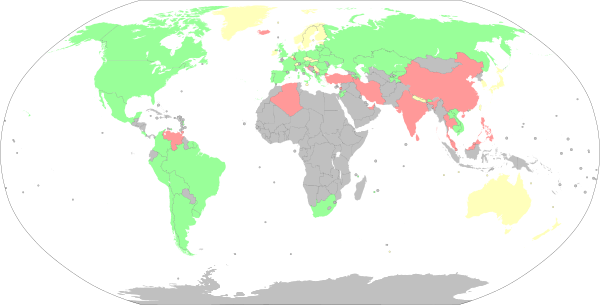Men who have sex with men
First, it was pursued by epidemiologists seeking behavioral categories that would offer better analytical concepts for the study of disease-risk than identity-based categories (such as "gay", "bisexual", or "straight"), because a man who self-identifies as straight may nonetheless be sexually active with other men; similarly, a man who self-identifies as gay or bisexual is not necessarily sexually active with other men.
Men who are non-heterosexual or questioning may identify with all, none, a combination of these, or one of the newer terms indicating a similar sexual, romantic, and cultural identity like bi-curious.
[6] There were no similar traits in all of the MSM population studied, other than them being males and engaging in sex with other men.
[7][8] The term's precise use and definition has varied with regard to transgender and intersex people, who do not fall neatly into binary sex categories.
[9] Determining the frequency of same-sex behavior is fraught with difficulty, due to its stigmatization, which may give rise to social desirable responding.
International variations in culture and moral values also present an additional difficulty in arriving at a global estimate of same-sex behavior among men.
As for the latter factor, men in particular seem to be more likely to admit to homosexual behavior in online questionnaires than in live interviews.
[10] The data below was taken peer-reviewed journals, academic books, websites of recognized pollsters, or institutional webpages.
[49] Studies have found that less than 5% of MSM in Africa, Asia, and Latin America have access to HIV-related health care.
[49] Pre-exposure prophylaxis (PrEP) is the use of medication to prevent HIV transmission in people who have not yet been exposed to the virus.
When used as directed, PrEP has been shown to be highly effective, reducing the risk of contracting HIV up to 99%.
[50] As of 2018[update], numerous countries have approved the use of PrEP for HIV/AIDS prevention, including the United States, South Korea,[51] France, Norway,[52] Australia,[53] Israel,[54] Canada,[54] Kenya, South Africa, Peru, Thailand, the European Union[55][56] and Taiwan.
[57] New Zealand was one of the first countries in the world to publicly fund PrEP for the prevention of HIV in March 2018.
[62][63] Genital human papillomavirus (HPV) is a common virus that most sexually active people in the U.S. will have at some time in their lives.
[64][66][67] Though not commonly classified as an STI, giardiasis can be transmitted between gay men,[68] and it can be responsible for severe weight loss and death for individuals who have compromised immune systems, especially HIV.
[72] Most national standards require direct questioning regarding a donor's sexual history, but the length of deferral varies.


